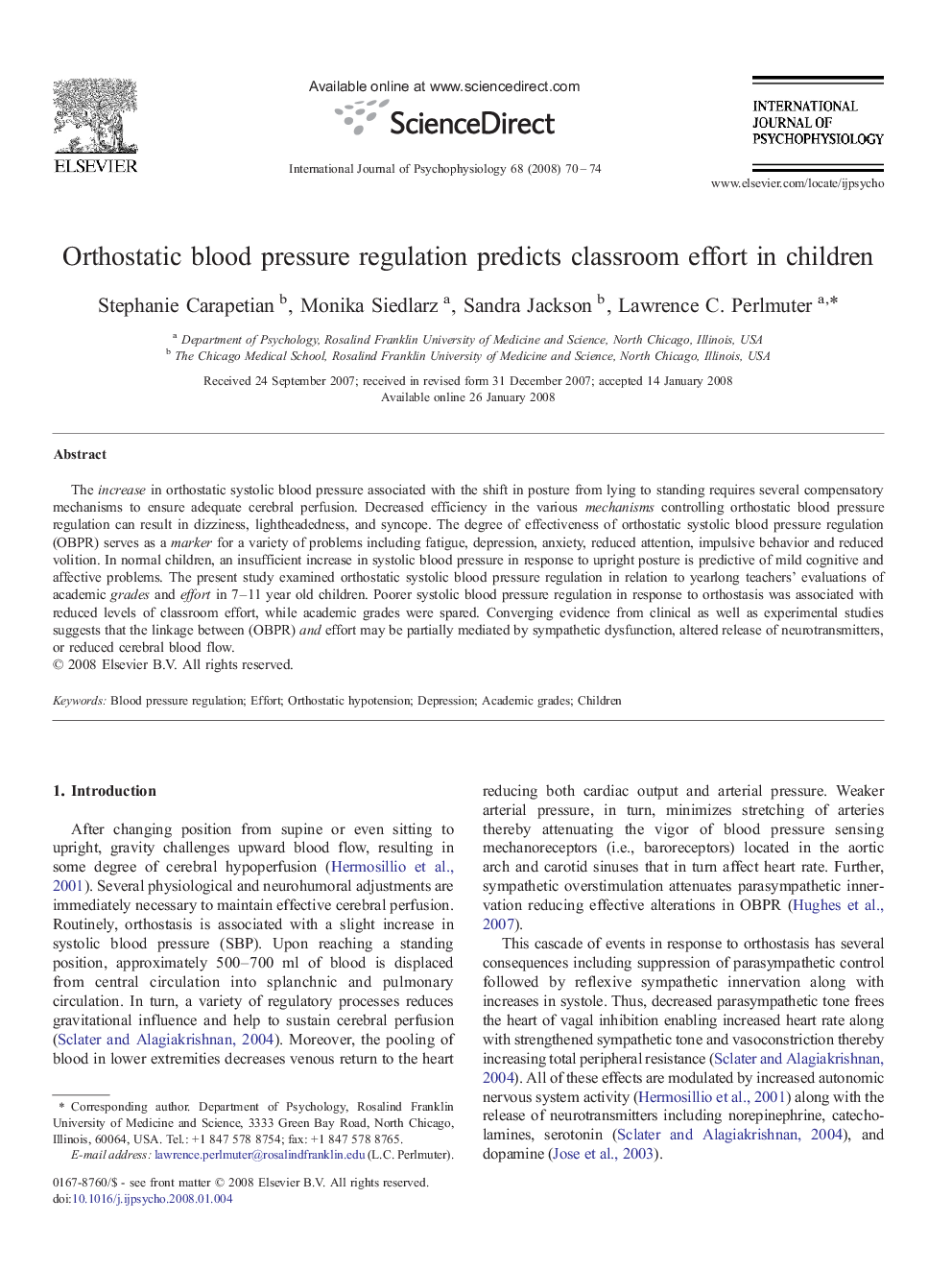| Article ID | Journal | Published Year | Pages | File Type |
|---|---|---|---|---|
| 930715 | International Journal of Psychophysiology | 2008 | 5 Pages |
The increase in orthostatic systolic blood pressure associated with the shift in posture from lying to standing requires several compensatory mechanisms to ensure adequate cerebral perfusion. Decreased efficiency in the various mechanisms controlling orthostatic blood pressure regulation can result in dizziness, lightheadedness, and syncope. The degree of effectiveness of orthostatic systolic blood pressure regulation (OBPR) serves as a marker for a variety of problems including fatigue, depression, anxiety, reduced attention, impulsive behavior and reduced volition. In normal children, an insufficient increase in systolic blood pressure in response to upright posture is predictive of mild cognitive and affective problems. The present study examined orthostatic systolic blood pressure regulation in relation to yearlong teachers' evaluations of academic grades and effort in 7–11 year old children. Poorer systolic blood pressure regulation in response to orthostasis was associated with reduced levels of classroom effort, while academic grades were spared. Converging evidence from clinical as well as experimental studies suggests that the linkage between (OBPR) and effort may be partially mediated by sympathetic dysfunction, altered release of neurotransmitters, or reduced cerebral blood flow.
